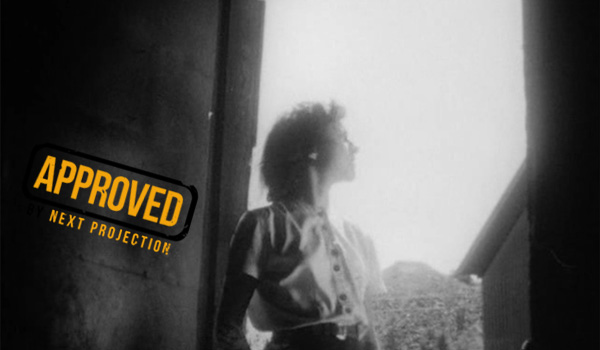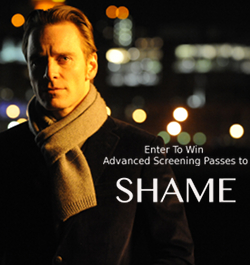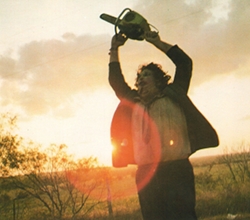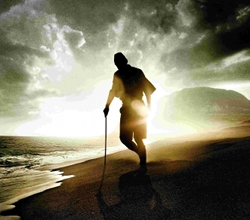Subversive Saturdays: Unglassed Windows Cast a Terrible Reflection
Stan Brakhage holds a high rank in my personal director canon. His boundless curiosity about the world, unique vision and philosophy on vision, and technical abilities were a powerful combination that resulted in an incredible body of work as he explored the mysteries of existence. He allowed his eye to carry a certain naiveté while his mind was strong enough to direct his eyes’ innocent exploration of the nature of the world. He understood the simplification of vision that occurred when everything was contextualized as you grew up. Everything was given a name, classification, boundaries, identifying characteristics, and a fundamental simplification in order to easily communicate our observations in the world around us with other humans. He would allow himself to explore the world around him with the untainted eyes of a child, often carrying out visual explorations by staring at an object until the boundaries became unclear and the universe seemed to be made up of tiny pieces that he called “god flakes”. He would allow himself to stare at the sun until his vision lost all context. His poetic mind gave him a boundless curiosity and the language to interpret these visual experiments for everyone else, either through his film or his words.
Brakhage typically eschewed conventional narrative formats, editing techniques, or even the camera itself at times. He understood elements of the vision that he wished to translate for others, but didn’t think in the language of conventional filmmaking. His vision was too pure for a three act structure, and he chose to construct his own cinematic language that was closer and could better capture some of the elements of this inner vision. Much of his body of work doesn’t even employ sound. The quietude of a silent screen and the barrage of images that Brakhage created with his films created an assault on all of the senses, despite the fact that you only perceive much of his art with your eyes. The mind scrambles to contextualize each frame until it surrenders to the assault and a purer form of observation takes over. Once you stop trying to put a frame around every image so that it can be more easily interpreted, you are able to feel his art on his intended terms, if only for a few disparate moments.
With Unglassed Windows Cast a Terrible Reflection we start with his wry sense of humor. It is difficult to tell precisely what he meant with this title, but those who have explored his work as though he were some sort of messiah of visual perception are well acquainted with the succinct nature of his communication and his ability to cram worlds of meaning in to each word he chose to write, and every frame he chose to capture. This is an early Brakhage film, and may have been filmed at a time when his vision was unclear to him, or he did not have the financial resources or wherewithal to put forth his purely subjective visual cinema. This film has credits, actors, conventional editing, and even a loose narrative structure. Despite these conventional elements that might have been working against the purity of Brakhage’s vision, he is able to construct some outstanding compositions and his use of natural lighting as a storytelling element is beyond words.
Is the title of this film referring to his affinity toward reflections in his films? Reflections in cinema are a curious thing and are able to add depth to a frame that few filmmaking techniques can even approach. Brakhage isn’t afraid to abandon his narrative for a few moments to consider the reflections in the glass and on the surfaces of anything reflective enough to make the light dance. We try to enter the worlds we see on screen through these reflections as our voyeuristic curiosity beckons us to explore each beam of light. Reflections bring depth and mystery to film. At times, a reflection may be our only option for observing the world that a film occupies. It is through the transmutations and disfigurations caused by these reflections that make their use poetic. They have the ability to twist the world surrounding the frame and obfuscate that world enough to draw our curiosity, and this obfuscation can lead to feelings of alienation if the filmmaker never turns the camera directly toward this reflected world. To do so would betray the mysteries of the worlds contained within the reflections, and they would lose their mystical world-altering powers. Perhaps it is better to wonder than it is to see. Reflections allow for this to happen in a purely visual medium.
The unglassed windows that Brakhage is wryly referring to in the title could also be the characters in the film. Brakhage was a (strike that, Brakhage was THE) visual filmmaker and most of the time didn’t use human figures in the frame, except to explore the mysteries of life, death, birth, and wonderment. Often the human figure is deconstructed through his methods of exploration. With Unglassed Windows Cast a Terrible Reflection, the characters often get in the way of the compositions. Brakhage filmed the bulk of Unglassed Windows at a dilapidated old mill, and his exploration of the crumbling structures and lights and shadows within was often imposed upon by these characters as they carried out their banal actions in service of some unimportant plot. The actions of these characters were largely uninteresting, especially when compared to the power contained within the images captured of this decaying mill. His ability to find texture and beauty within the decay of this mill and his willingness to let the light be the star of the frame lends itself to some phenomenal visual filmmaking. Even the inclusion of arbitrary dramatic elements and violence did not make the actions of these characters more interesting than the masterful compositions that filled each frame. Could Brakhage be using this film to subvert conventional narrative technique and to show that film didn’t have to be simply another storytelling tool? Is he forcing us to subvert our own sensibilities, or at least call them in to question?
Enter this film with a purity of vision and a childlike wonderment about the world around you, and it should be a complete success at conveying an early version of Brakhage’s unique vision. Remember that there are no rules, and that at its core cinema is essentially a rapid succession of images. Once you are armed with the proper mindset, you will be rewarded with some of the most brilliant technical filmmaking from an unmatched visionary’s oeuvre. Do not betray Brakhage’s vision by watching the film with the optional soundtrack. This film should be taken in on Brakhage’s terms and watched in absolute silence. It is only when you can learn to silence your own inner dialogue and “listen” to his vision that you can begin to unlock the truths and strategic falsehoods of this film. Brakhage’s work transcends the medium and challenges your sensibilities to the point where you begin to question how those sensibilities were established in the first place. These are some of the things that great art should do. It should challenge your framework of perception and force you to ask questions of yourself. It is this introspective dialogue within yourself that answers can begin to form, but not the answers to the questions you thought you were asking. It compels you to consider the types of questions that you should have been asking in the first place.




















